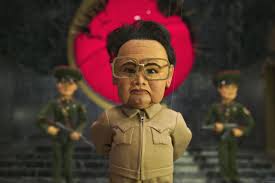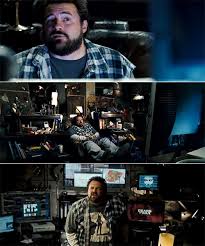 As the Sony hacking case has played out over the past several weeks, it’s a story that has been relegated mostly to the business pages and, simultaneously, the gossip industry. With no one explicitly claiming responsibility for the breach of the entertainment giant’s computer system, the focus has been more on the corporate ramifications, placing it in business reports, and the stream of buzzworthy stories including the e-mails between Amy Pascal and Scott Rudin and the pontifications of Aaron Sorkin have been fodder for everyone from The New York Times to Entertainment Tonight. That the personal records of Sony employees past and present, including medical files, had been taken and released publicly didn’t seem to figure into the narrative in a significant way; it was just one more data hack (e.g. Target) that only hit home if it had happened to you now or in the past.
As the Sony hacking case has played out over the past several weeks, it’s a story that has been relegated mostly to the business pages and, simultaneously, the gossip industry. With no one explicitly claiming responsibility for the breach of the entertainment giant’s computer system, the focus has been more on the corporate ramifications, placing it in business reports, and the stream of buzzworthy stories including the e-mails between Amy Pascal and Scott Rudin and the pontifications of Aaron Sorkin have been fodder for everyone from The New York Times to Entertainment Tonight. That the personal records of Sony employees past and present, including medical files, had been taken and released publicly didn’t seem to figure into the narrative in a significant way; it was just one more data hack (e.g. Target) that only hit home if it had happened to you now or in the past.
Of course, things escalated this week when a direct threat was made against theatres showing the Seth Rogen- James Franco film The Interview. The air of genuine concern rose yet higher when the U.S. government asserted that the hack had been engineered by North Korea in retaliation for The Interview’s depiction of an ultimately successful plot on the life of their dictatorial leader Kim Jong-un.
Yet if my social media feeds are any indication, the vast majority of people, even this morning, find the whole situation slightly ridiculous and still worthy of snark. In the wake of theatre chains, and finally Sony, pulling The Interview from exhibition, the prevailing response seems to be inordinate attention to the Alamo Drafthouse’s (in Dallas/Fort Worth) decision to screen Team America: World Police, which a decade ago rendered Kim Jong-il as a literal puppet dictator, as well as jokes about Rogen’s affinity for smoking marijuana leading to an international crisis and this really being the fault of NBC for canceling Freaks and Geeks.
I’ll admit to having paid minimal attention to the hack story until the combination of the threat against theatres and theatre patrons, the yanking of the film and the U.S. pointing its finger towards North Korea reached a critical mass for me. Like many, I’ve probably been lulled by too many years of watching action and espionage films in which there is always some megalomaniac trying to get rich or conquer the world, be it Dr. No or Dr. Evil. As for hacking, it’s always been made to seem a bit romantic and alluring (Sandra Bullock in The Net, Angelina Jolie in Hackers) or all-powerful yet benign (Kevin Smith in his mother’s basement in one of the later Die Hard films).
But now we’ve moved from the world of fictional espionage into a real life amalgamation of terrorism and blackmail. Yes, as many have pointed out, it’s questionable whether North Korea or any malefactor could carry out coordinated attacks in movie theatres across the country. But it would take only one such incident to genuinely terrorize the country, with social and economic ripples far greater than those felt after the movie theatre shooting in Aurora, Colorado. Frankly, even if the perpetrator of the Sony hack was just bluffing, who’s to say that some copycat might not take the opportunity into their own hands in just one community? The very threat of terrorism is what has lifted the scenario into a much more troubling realm, and even if the ransom to be paid was the suppression of one film instead of one billion dollars, the result is that it worked, and set an awful precedent.
Any number of commentators, professional and amateur, have been quick to say that Sony “caved,” that they allowed the perpetrator of the threat to win, but that’s a simplistic response. Already faced with a massive economic hit from the data release, which will most likely continue, could the company risk being seen as insensitive to the threat, could it have taken the risk that there was no real danger? They’ve been in a no-win situation for weeks now, and no matter what choice they had made, it would have been seen as wrong. I’m not an apologist for their decision, but I can at least see them as having been given the proverbial Sophie’s choice.
I deplore what has taken place, which is a form of censorship by blackmail. Instead of providing a ransom to get something back, Sony has had to withhold something to, hopefully, eliminate any possibility of a violent reprisal. Their data is out of their control, never to be reined back in. And our constitutional right to freedom of speech has been infringed upon by some outside entity, even if it was Sony who made the decision to shelve The Interview.
Watching a big corporation being hamstrung may seem pretty distant from the world of live performance, but it’s really not. The rhetoric surrounding the Metropolitan Opera’s production of The Death of Klinghoffer this fall, due to its supposedly anti-Semitic content, was marked with significant vitriol which never quite reached the level of threat, but still prompted major security measures to be put into place. Those with short memories may have already forgotten the threats against Terrence McNally’s Corpus Christi, which forced Manhattan Theatre Club to implement a range of protections from those who decried it as sacrilegious. No one found those scenarios funny, and even if protections were being taken against individuals and groups, rather than a government, even if each played in one theatre instead of 2,000, the parallels are there.
As of this morning, our government is reportedly weighing its choices on how to address the North Korean actions, even as some are suggesting that it isn’t North Korea at all, or if it is, it’s North Korea in alliance with other people or governments. There are hawks already taking verbal flight to cry out for retaliation, but its worth noting that while Sony is a Japanese corporation, Japan may be more cautious than we are, since North Korea regularly fires test missiles across their airspace, and who knows what their leader might do if provoked. We may find his flirtations with Dennis Rodman hilarious, but this is a country that has been ruled with a vicious iron hand for decades, a country where citizens have virtually no rights or freedom.
The era of digital warfare has sprung into full view with the Sony hack and The Interview’s suppression. No matter who’s behind it, it has proven that through the control of computers and information, not only with armaments, free will and basic rights can be bent all too quickly. While the hack is real, perhaps the threat is an elaborate hoax. Of the latter, we may never know with 100% certainty. But the question now is how does America guarantee its right to free speech against opponents both domestic and foreign, even when that speech is as inconsequential as I imagine The Interview to be.
Update, December 18, 3:30 p.m.: for those who saw Alamo Drafthouse’s plan to screen Team America in place of The Interview as a stand against censorship, I’m afraid you’re out of luck. Paramount has withdrawn that film from release as well, despite the fact that it’s a decade old. This is how the slippery slope carries us all downhill.







